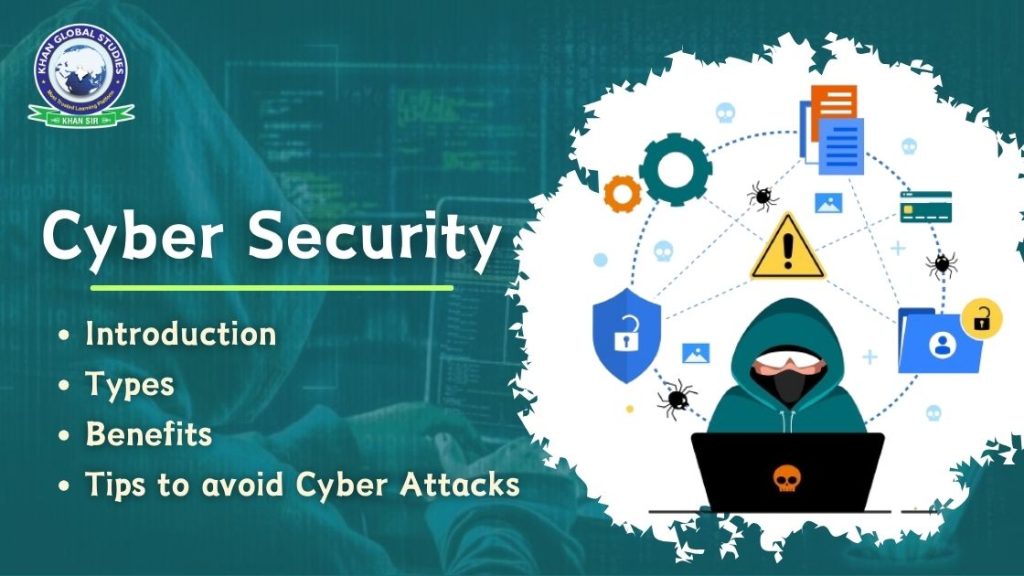The term “Cyber Security” refers to the type of protection provided to cyber systems that people can access through the Internet or intranet. The Internet comprises a global network of computers or other electrical devices, while an Intranet consists of a private system of networks that particular organizations design for their use.
What is Cyber Security?
Cyber Security is also known as Information Technology Security or Electronic Information Security. Cybersecurity protects systems, networks, and programs from digital attacks. The purpose of these cyber attacks is usually to access, alter, or destroy sensitive information; Extort money from users, or interfere with regular corporate operations.
Introduction to Cyber Security
- Cybersecurity was first tested in the 1970s when researcher Bob Thomas developed a computer program called Creeper that could roam over the ARPANET.
- Ray Tomlinson, the creator of email, created the Reaper program, which tracked and removed creepers. Reaper is the creator of the first computer Worms and Trojans, which is the first example of a Malware Antivirus Application and stands as the first detected self-replicating program or virus.
- In the 1970s, Programmer Bob Thomas created what many consider the first computer Trojan event as worms and Trojans transitioned to PCs, an unprecedented event at the time.
Cyber Threat Scale
- According to Forbes, a variety of dangerous cybersecurity concerns will arise in 2022, including supply chain disruptions, more threats from smart devices, and a continued shortage of cybersecurity experts. According to Cyber Crime Magazine, by 2025 the world will suffer an annual loss of $10.5 Trillion from cybercrime.
- In the following years, estimates predict that the costs tied to cybercrime will globally increase about 15% annually. Bitcoin, the pandemic, and the rise in remote labor have allowed cybercriminals to create target-rich environments.
Types of CyberSecurity
Types of cybersecurity are listed below.
Network Security: Network security emphasizes fixing flaws in operating systems, network architecture, wireless access points, servers, hosts, firewalls, and network protocols.
Cloud security: Securing the data, apps, and infrastructure in the cloud is the focus of cloud security. With the help of cybersecurity solutions, controls, policies, and services, an organization’s entire cloud deployment (applications, data, infrastructure, etc.) can be protected from attack.
Endpoint Security: With Endpoint Security, organizations can protect end-user devices, including desktops and laptops, with state-of-the-art threat prevention including data and network security measures, anti-phishing and anti-ransomware, and forensics-oriented technologies. Detection and Response (EDR) solutions.
Mobile security: Because corporate data can be accessed on mobile devices such as tablets and smartphones, organizations are at risk from phishing, Malicious Software, Zero-Day Vulnerabilities, and IM (instant messaging) attacks.
- Mobile security prevents these attacks and shields operating systems and devices from rooting and jailbreaking.
- This enables businesses to guarantee that only compliant mobile devices access company assets when combined with an MDM (Mobile Device Management) solution.
IoT Security: IoT security involves securing the networks and smart devices connected to the IoT. IoT devices are objects that automatically connect to the Internet, such as smart lighting, thermostats, fire alarms, and other appliances.
Application Security: Addressing vulnerabilities that arise from unsafe development processes in designing, building, and releasing software or a website is known as application security.
Zero Trust: Zero Trust is a security framework that mandates that before granting or maintaining access to applications and data, all users inside or outside the organization’s network must first authenticate, authorize, and complete ongoing security configuration.
Need for Cyber Security
An increasing number of people, devices, and programs fill the modern organization, many of which hold sensitive or confidential information, making cybersecurity increasingly essential. A rise in the volume and sophistication of cyber attackers and their methods has exacerbated the problem. Below are the reasons why cybersecurity is necessary.
- Cybersecurity breaches are becoming more costly: Organizations that experience cybersecurity breaches can be hit with hefty fines. Non-financial costs such as reputational damage must also be taken into account.
- Rise of remote work: Due to the Coronavirus, the hybrid mode has become dominant and the need for security of the organization is being felt.
- Sophisticated Attacks: Cyberattacks are becoming increasingly sophisticated, and attackers are using a variety of strategies. These include ransomware, malware, and social engineering.
- Cybercrime has become big business: Cybersecurity risks are difficult to monitor due to new legislation and reporting requirements. Management should reassure the board that its cyber risk management plan will reduce the likelihood of attacks and limit their negative financial and operational impacts.
Benefits of CyberSecurity
The benefits of cyber security are listed below:
- Cybersecurity provides comprehensive digital protection to the organization.
- Flexibility in internet usage among employees in the company also protects from threats and risks.
- Cyber security protects personal information
- Increases and protects productivity
- Prevention of unauthorized user access
- Enabling users to work in a comfortable environment
- As a result, various tasks have become mechanized
- We need to improve the way we organize data and information.
Latest Cyber Security Threats
The governments of the UK, US, and Australia have reported the latest cyber threats listed below.
- Pegasus Cyber Attack: NSO Group, an Israeli technology company, created this spyware. It is malicious software that infiltrates the device, collects data, and can forward the data to third parties without the user’s consent. Reports emerged in 2021 of spying on journalists, MPs, and prominent citizens in India, but no authentic evidence was found.
- Dridex Malware: This was reported by the US Department of Defense in 2019. A financial trojan with many features is called Dridex. It has been harming its victims since 2014. Phishing emails or pre-existing malware infects computers. This has resulted in huge financial losses amounting to millions of dollars. It can obtain passwords, banking information, and personal data, which can be used in fraudulent transactions.
- Romance Scam: This was reported in the US in 2020. The FBI issued a warning to the American people about the trust fraud that cyber criminals commit through dating websites, chat rooms and apps. Criminals take advantage of single people looking for love by tricking them into revealing personal information.
- Emotet Malware: The Australian Cyber Security Center issued a warning to national institutions in late 2019 about the widespread Global Cyber Threat of Emotet Malware. Emotet is a powerful Trojan that apart from stealing data, can also load other software. Emotet thrives on simple passwords, which serves as a reminder of the importance of choosing strong passwords to protect against online threats.
Cyber Security Tips to Avoid Cyber Attacks
Below are some security framework tips to prevent cyber attacks.
- Protect yourself as well as your internet presence.
- Be conscious of how you look during video conversations and video chats.
- Never use a smartphone to capture private, delicate photos or videos.
- Protect yourself from online harassment.
- Beware of fake social media profiles.
- Be careful when sending your computer or mobile devices for servicing, repair, or sale.
- Keep your means of communication secure.
- Report any child pornography, paedophilia material, or sexually graphic information you come across. Avoid clicking links in emails from suspicious senders or unfamiliar websites.
- Apply Antivirus Software.
- Avoid using public Wi-Fi networks that are not secure.
- Create a secure password for your account to avoid account hacking.
- Configure secure browser options.
Conclusion
- Cyber security is a field that deals with ways to protect systems and services from Malicious Online Attacks, including spammers, hackers, and cybercriminals.
- Additionally, creators design certain cybersecurity components to protect all assets ranging from computers and cellphones to networks and databases from attacks.
- Nowadays, there are more devices than humans and hackers are becoming more creative. As a result, it is difficult to implement efficient cybersecurity measures.
- The field of cybersecurity is still in its infancy, yet it is critical to maintaining the business operations of an organization.
- It is not a single item, but a collection of methods or strategies. To keep user data secure and operations run smoothly, every organization must adopt cybersecurity measures.






Thanks for sharing this blog